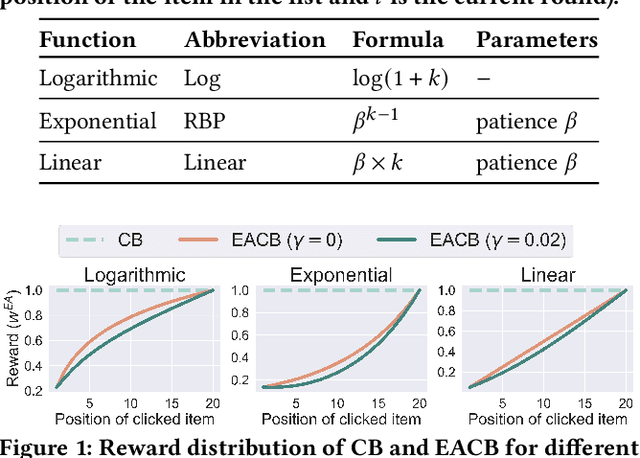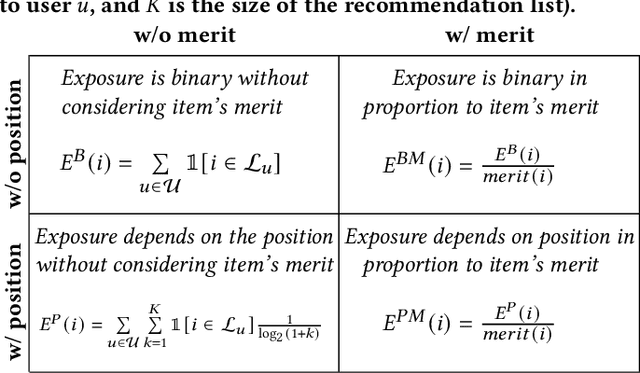Mitigating Exposure Bias in Online Learning to Rank Recommendation: A Novel Reward Model for Cascading Bandits
Paper and Code
Aug 08, 2024



Exposure bias is a well-known issue in recommender systems where items and suppliers are not equally represented in the recommendation results. This bias becomes particularly problematic over time as a few items are repeatedly over-represented in recommendation lists, leading to a feedback loop that further amplifies this bias. Although extensive research has addressed this issue in model-based or neighborhood-based recommendation algorithms, less attention has been paid to online recommendation models, such as those based on top-K contextual bandits, where recommendation models are dynamically updated with ongoing user feedback. In this paper, we study exposure bias in a class of well-known contextual bandit algorithms known as Linear Cascading Bandits. We analyze these algorithms in their ability to handle exposure bias and provide a fair representation of items in the recommendation results. Our analysis reveals that these algorithms fail to mitigate exposure bias in the long run during the course of ongoing user interactions. We propose an Exposure-Aware reward model that updates the model parameters based on two factors: 1) implicit user feedback and 2) the position of the item in the recommendation list. The proposed model mitigates exposure bias by controlling the utility assigned to the items based on their exposure in the recommendation list. Our experiments with two real-world datasets show that our proposed reward model improves the exposure fairness of the linear cascading bandits over time while maintaining the recommendation accuracy. It also outperforms the current baselines. Finally, we prove a high probability upper regret bound for our proposed model, providing theoretical guarantees for its performance.
 Add to Chrome
Add to Chrome Add to Firefox
Add to Firefox Add to Edge
Add to Edge